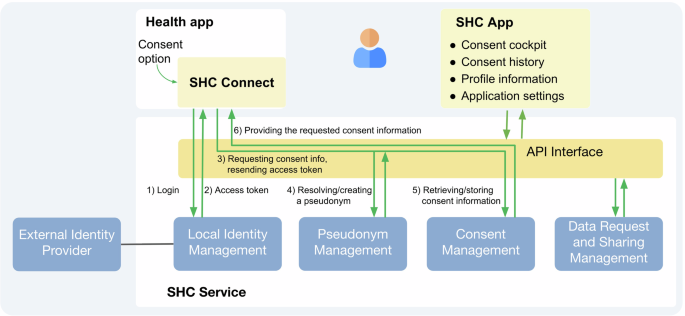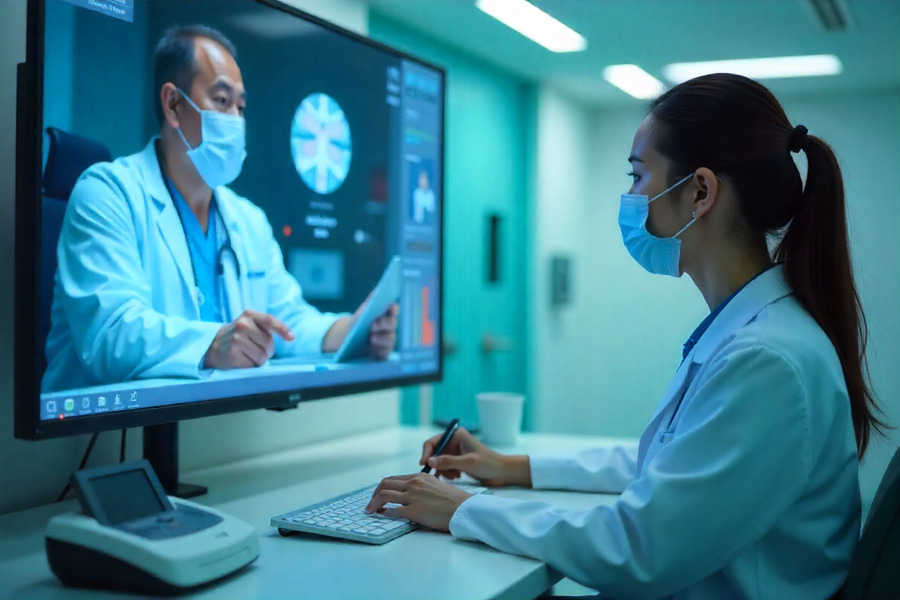How digital healthcare can slow MCI and dementia progression

As the pharmaceutical industry races to develop treatments for Alzheimer’s and other dementias, clinicians are focused on other aspects of disease management, including slowing the progression of cognitive impairment. If caught early, there are noninvasive methods to support patients experiencing the loss of cognitive abilities.
Nuvance Health, a seven-hospital system headquartered in Danbury, Connecticut, aims to do just that by expanding its partnership with Neuroglee Health. The latter, a specialty care group, offers a mobile platform to enable at-home interventions for people experiencing mild cognitive impairment (MCI) and early-onset dementia. The health system announced this summer that the group’s Neuroglee Connect platform has been expanded to its primary care practices in New York and Connecticut, increasing access to activities that stimulate the brain, health education and caregiver support.
According to the Alzheimer’s Association, MCI is an early stage of memory or cognitive ability loss that is noticeable but does not significantly impact the individual’s ability to carry out their daily activities. Though MCI is not considered a type of dementia, people with MCI can develop dementia. Data from 2022 reveals that 12% to 18% of people 60 or older live with MCI in the U.S. Of these, 10% to 15% of people develop dementia each year.
According to Alex Mosteanu, M.D., regional medical director of Nuvance Health Medical Practice Primary Care East, brain-stimulating activities like playing cognitive games and learning new skills can help slow the progression of MCI and early-onset dementia to more severe forms of cognitive decline, much like exercise can help stem physical decline.
“We want to get the brain to the gym,” he said in an interview.
Neuroglee Connect offers that mental gymnasium. Enabling primary care providers to provide access to the platform can provide numerous benefits, such as allowing physicians to track patients’ progress and make informed decisions about which patients require a higher level of care.
At-home support for MCI and early-onset dementia
MCI and early-onset dementia can manifest in several ways — some innocuous and some harmful.
“Maybe family members note, ‘Hey, your memory is not as good as it used to be,’ but [the individual] continues to function very, very well,” Mosteanu said. “And then it becomes more serious…. All of a sudden, they are not able to keep appointments. They start missing appointments. They forget the stove is on.”
The Neuroglee Connect platform offers at-home access to various mental exercises to enhance the brain’s waning cognitive abilities. These include new skills and memory compensation training, as well as reminiscence activities that involve the individual viewing personal photographs and videos to trigger memories. The platform also provides content about healthy lifestyle habits, such as diet, physical exercise and sleep.
When patients enroll in the program, they have a virtual appointment with a Neuroglee clinician who conducts recommended testing and establishes a baseline. They are then asked to do certain exercises offered on the platform and are tested again two weeks later. Following the first two visits, the patients meet with their Neuroglee care teams every three months. Their team continues monitoring their performance remotely. The exercises usually require 30 to 60 minutes a week.
“The [patients] get alerts, reminders to exercise their brain,” Mosteanu explained. “The exercises are adaptive, from what I understand, meaning that they change depending on [the patient’s] skill set and what they need to work more on.”
Nuvance Health began pilot-testing the at-home care program in 2022 within its Neuroscience Institute. Neurology practices across New York and Connecticut enrolled MCI patients in the program, allowing neurologists to use the data and insights provided by Neuroglee to track disease progression and modify treatment.
Why integration with primary care is necessary
Until this summer, the Neuroglee Connect platform was only available within neurology practices. Now, primary care practices will also be able to enroll patients in Neuroglee Connect, which will significantly expand access to the platform’s benefits.
One of the most significant benefits is that it provides guidance on the brain-stimulating activities and lifestyle changes needed to stem the progression of MCI or early-onset dementia. Mosteanu compared it to dieting, where clinicians often give people general advice, like “eat more fresh vegetables,” rather than specific recipes, making it more challenging for patients to follow the advice.
Similarly, without the digital care platform, clinician advice about brain exercise could be confusing and vague.
“Now, with the Neuroglee platform, it’s like having a nutritionist over your shoulder that says, ‘Hey, today you have to eat this group of vegetables and this group [of foods] and this quantity,'” he said. “So it gives you a very clear structure … [like] today you are going to do 15 minutes of this particular exercise that is going to stimulate that particular part of the brain.”
Another benefit is that the platform can help enable early intervention. MCI or early-onset dementia can develop into more severe types of dementia requiring a more comprehensive level of care, including medications and clinical supervision; thus, early intervention is critical.
However, patients displaying symptoms of MCI or early-onset dementia might not be able to quickly get specialty care appointments with neurologists, allowing the disease to progress, Mosteanu noted. Using the platform allows Nuvance Health to support these patients and slow the progression of their disease so that they do not need to seek immediate specialty care,
Further, amid the neurologist shortage in the United States, the platform allows primary care physicians within the health system to care for patients with MCI and early-onset dementia, freeing up the specialists for patients with more advanced dementias.
“We hope to keep the neurologists for what they are trained for — the most severe cases,” said Mosteanu. “Because if we’re going to send every patient that has MCI to a neurologist, they will not be able to see our sickest patients.”
Successfully slowing disease progression also gives patients a better shot at successful treatment for dementia. Mosteanu noted that medications and interventions for the various types of dementia are evolving, so if platforms like Neuroglee Connect can help buy patients time, they might have more effective drugs and more choices of treatment available to them when they need them.
Though challenges remain — especially with regard to digital health literacy and other technology use barriers — Mosteanu is hopeful that integrating the Neuroglee platform into primary care practices at Nuvance Health will allow MCI and early-onset dementia patients to bolster their cognitive abilities and stem the tide of dementia.
Anuja Vaidya has covered the healthcare industry since 2012. She currently covers the virtual healthcare landscape, including telehealth, remote patient monitoring and digital therapeutics.
link







